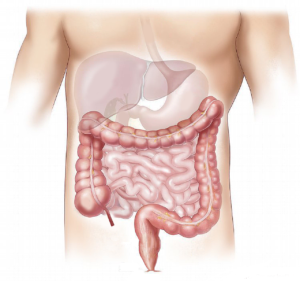Fermented Foods:
5 Reasons To Consume This Food Group Every Day
I’m sure you have heard about fermented foods and are wondering if this is just a fad. Here are some reasons why fermented foods should not be just a fad but a food group to keep in your diet daily.
What Are Fermented Foods?
Bacteria and yeast are used as part of the fermentation process that gives these foods a nutritional boost. The bacteria convert sugars and starches into lactic acid through a process called Lacto-fermentation. The yeast undergoes a process called ethanol fermentation.
These yeasts and bacteria that undergo the fermentation process boost the nutritional content of the food.
What Fermentation Does To The Food
- Provides beneficial bacteria that promote gut health
- Provides beneficial enzymes
- Increases the number of B vitamins, biotin, and folate.
- Increases the bioavailability of minerals.
- Provides short-chain fatty acids (which helps to improve your immune function)
- Provides you with GABA, your calming neurotransmitter
How Can Eating Fermented Foods Help Me?
Optimize Your Gut Health
Why this may not seem like a big deal, it is. Your immune system is in your gut, and much of your serotonin is made in your gut. Your gut may be in bad shape from NSAIDs, antibiotics, unknown food allergies, the standard American diet, and more.
Ideally, you want more “good” bacteria populating your gut instead of “bad” bacteria. Fermented foods can help shift the balance since most people who consume the Standard American “crap food” diet have a disrupted microbiome.
So, you can take all the supplements in the world, but if your gut is in bad shape, are you even absorbing and benefiting from these supplements, or are you just wasting your money?
A healthy gut can help balance and support your endocrine system, immune system, digestive system, and nervous system. So, as you can see, a healthy gut is critical to your well-being.
Support Your Immune System
The more beneficial bacteria you have, the stronger your immune system fights off colds, flu, allergies, and more. Almost 80% of your immune system is found in your gut; thus, it stands to reason that to maintain a robust immune system, one needs to support gut health.
Asthma and autoimmune conditions, among numerous other health issues, are linked to having fewer good bacteria in your gut. The less diverse your microbiota is, the more significantly associated with many chronic health issues.
Adding in probiotic-rich fermented foods can also shorten the duration of a cold or upper respiratory infection.
Aids in Weight Loss
Studies show that those with certain healthy bacteria in their gut can maintain a healthy weight. At the same time, those with more negative strains have a greater incidence of gaining weight/difficulty losing weight. Obese people have different gut bacteria than lean individuals.
In a 2011 study, it was found that kimchee had a significant impact on the weight and body fat of those who are overweight and obese in the study. In a 2010 study, obese people were assigned to drink fermented milk for 12 weeks. Those that drank the fermented milk had significant fat loss as compared to the control group.
Digestive/Bowel Issue Improvement
Dr. David Williams states that to eliminate digestive issues, you need to improve the balance in the gut microbiome. One of the most effective ways of doing so is by adding in fermented foods. Kefir, in studies, has shown to improve symptoms of IBS and IBD. Research has shown that anywhere from 50 to 75% of those who make this change (Adding in fermented foods) will notice a significant difference in their IBS symptoms. Those with IBS or IBD may have reduced symptoms of diarrhea and constipation when fermented foods are added to the daily diet.
Improved Mental Health, Mood Control, and Behavior
The gut is considered your second brain. A healthy gut, therefore, can mean a healthy brain. Several probiotic strains have been shown to reduce symptoms of depression and anxiety in short-term studies. For this reason, to get more variety of probiotic strains, it is best not to stick with the same fermented food to eat repeatedly. Mix it up; for instance, have kefir one day, kombucha the following, fermented vegetables the next day, and so forth.
Many of you know that GABA is your calming neurotransmitter. But did you know that fermented foods can supply you with GABA too? Oral administration of fermented rice bran and other traditional fermented foods has significantly increased GABA content! Whereas GABA in the oral form may have limited benefits due to absorption issues.
Another study looking at 700 college students found that those who ate various fermented foods had fewer negative emotions than before, such as anxiety, fear, moodiness, worry, envy, frustration, and loneliness.
It is possible that the fermented foods not only healed leaky gut but also provided some needed GABA. Even in psychiatry, they are starting to recognize the benefits of fermented foods for mood disorders.
Reduce the Risk of Brain Diseases Such as Alzheimer’s
Some scientists have recently begun to consider the possibility that Alzheimer’s Disease is, in fact, an autoimmune disease. And as many of you may know, having one autoimmune condition puts you at risk for more autoimmune disorders down the road. For any autoimmune disease, the immune system must be supported. So, it would make sense that gut health needs to be addressed for AD. If you want to help your brain, then I suggest that you add fermented foods.
Along with the benefits above, fermented foods can also benefit those with Autism and help prevent H-Pylori. You don’t need a whole lot of fermented foods daily. Start with small amounts until you know how your body will react, and slowly build your way up to, say, three tablespoons of fermented vegetables or a cup of kefir per day.
What to Add-In
Look for the product to say raw and fermented. These foods should be in the refrigerator section of the store.
- Sauerkraut or other fermented vegetables: Eat these cold, don’t heat them. Bubbies pickles are a great way to get introduced to fermented foods.
- Kimchee: This is a Korean version of fermented cabbage, carrots, onions, and garlic.
- Kefir: Usually made from cow’s milk but is also made from goat milk or coconut milk. It has more of a drinkable texture than yogurt. If you suspect any issues with milk, it is best to opt for coconut kefir or goat milk kefir. If you have asthma or chronic sinus congestion, avoid the kefir until issues resolve. Opt for the other fermented choices instead.
- Tempeh: Indonesian type of “cake” with a nutty taste and chewy texture. An excellent vegan source of protein too.
- Kombucha: A fizzy fermented tea. Most stores carry a variety of flavors now. Don’t go overboard on the kombucha, however. Some people who drink kombucha in excess amounts (i.e., several bottles per day) report symptoms of gas and bloating.
- Miso: A fermented soybean paste that can be used in soups and sauces. A miso broth soup is a great way to start a meal and very easy to make.
Avoid overly processed yogurt with added sugar, artificial sugar, dyes, and colors.
Bottom Line: It can be easy to incorporate fermented foods into your daily regimen. You don’t need a lot to reap the benefits. Another option is to make your fermented vegetables, kombucha, and kefir at home. There are many recipes and “how-to” videos online. I have made fermented sauerkraut, but I did make a mess in the process, and while I like to prepare many of my foods, I decided this is one I would instead purchase.
Sources
Add Alzheimer’s disease to the list of autoimmune diseases
Can probiotics shorten the duration of the common cold?
Changing gut bacteria through diet affects brain function. UCLA study shows
Fermented foods gaining popularity as health benefits become more widely recognized
Fermented foods, microbiota, and mental health: ancient practice meets nutritional psychiatry
Impact of Kefir derived lactobacillus kefir on the mucosal immune response and gut microbiota
learn about the probiotic benefits of traditional fermented foods
Regulation of abdominal adiposity by probiotics
Sauerkraut could be the secret to curing social anxiety.








Leave A Comment
You must be logged in to post a comment.